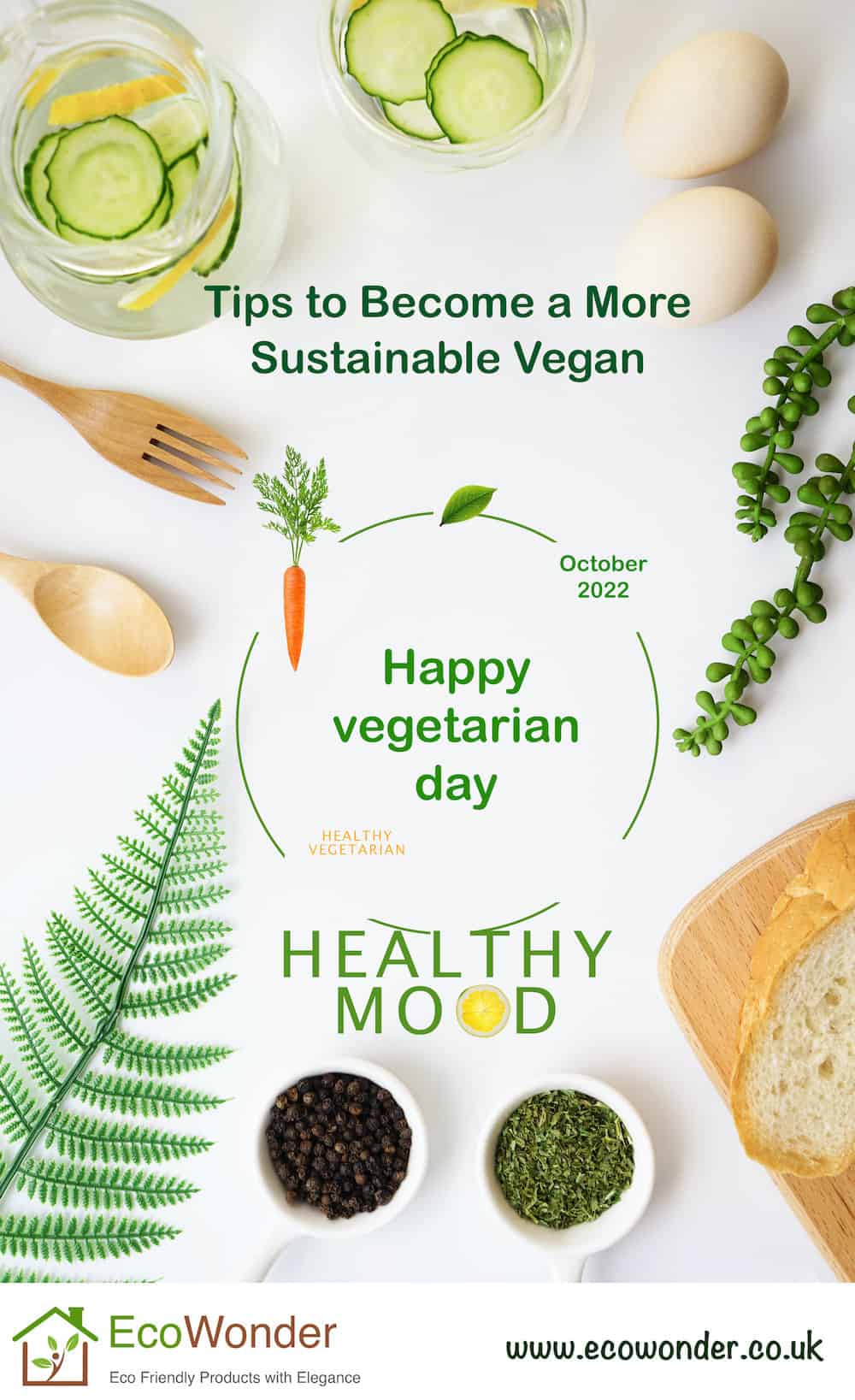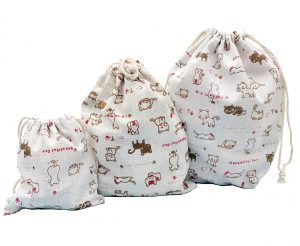As the annual World Vegetarian Day is approaching, we celebrate with the vegan community for a happier healthy and environmentally friendly lifestyle.

The vegan lifestyle has grown significantly in popularity in recent years. Veganism has a positive influence, especially in terms of lowering carbon emissions, whether motivated by ethical concerns, environmental protection, or merely fashion. Despite the praise, little thought is devoted to properly evaluating whether veganism is as sustainable as it is portrayed in the media. Here are some tips on how to become a more eco-friendly sustainable vegan:
1. Start composting
This is a more complicated process that won’t apply to everyone because you’ll need composting equipment and an outdoor area to keep it in. You can still compost your food waste even if you are unable to establish your own compost mound.
It will be simpler if your city provides a residential composting program. Simply educate yourself on what can and cannot be composted and establish excellent habits for disposing of your garbage in the appropriate bins. You can locate a nearby compost to which you can drop off your food waste. Alternatively, you might take your scraps to a nearby store that has a compost bin.
2. Purchase used goods
We all give away our old clothes and furniture to thrift shops. But have you ever made a purchase there? Many of us were raised under the misconception that only people who cannot afford new items should shop at second-hand stores.
Fortunately, as more people become aware of how unsustainable it is to buy everything brand-new, this viewpoint is quickly changing. You never know what treasures you might find when you start exploring the stylish second-hand shops that are sprouting up in addition to the typical thrift stores.
3. Avoid buying things you don’t need
We tend to hoard and acquire stuff because of all the times of shortage that our ancestors endured. But today, the opposite of scarcity affects a lot of us. Try to adjust your mindset. We have a strong need to seize everything valuable. Does it make you happy and has value? If not, don’t buy it.
4. At the supermarket, save the lone banana
Have you ever gone to the grocery store’s banana section, grabbed a bunch of bananas, peeled off exactly how many you needed, and then put the rest back in the pile? It has been discovered that single bananas are more likely to be thrown out by stores and never find a home if their attached buddies have been taken away from them.
Every time you buy bananas at the grocery store, simply pick up every lone banana you can find and put it in your cart.
5. Change to solid shampoo and bar soap
Are you prepared for one of the simplest steps you can take to reduce plastic waste? Use solid shampoo and bar soap instead! It can seem essential to have thick plastic containers that hold liquid soap, shampoo, bubble baths, and other bath and body goods.
You won’t want to use liquid soap again after switching to bar soap. The superfluous nature of all those plastic bottles will become immediately apparent. Bar soap performs equally effectively.
6. Buy from eco-friendly companies
You might be wondering how increasing your consumption of goods might be environmentally friendly. It’s not about making more purchases. It’s about making investments in long-lasting products that are built well and intentionally.
Buying from companies that care about the environment will have a cascading effect. You are sending a message that consumers are actively looking for things that don’t harm the environment, in addition to being prepared to pay for them.
Veganism has become ensnared in consumerism’s grasp, much like any popular commodity or service in today’s economy, and pricing is determined by demand in accordance with market principles. Not just what food is produced, but also how it is produced and delivered, needs to be given more thought. If vegan food production is discovered to be exploitative, largely imported, and dependent on high inputs of fertiliser, fungicides, pesticides, and herbicides, how sustainable is it?
We must be clear that our goal is not to dissuade people from becoming vegans, but rather to think through workable ways to make our current food systems better while minimising the negative effects. Any effort to make veganism more accessible to everyone should make sure that marketing and how veganism is presented convey the same message. Campaigns and advertisements should strive to make it feel as approachable as possible rather than pandering to a certain sector. This would make it easier for individuals to link veganism to themselves rather than just seeing it as another internet fad. In conclusion, veganism is unquestionably an environmentally responsible lifestyle choice in a variety of ways. Hope you can always enjoy your food and be happy as a sustainable vegan :).





